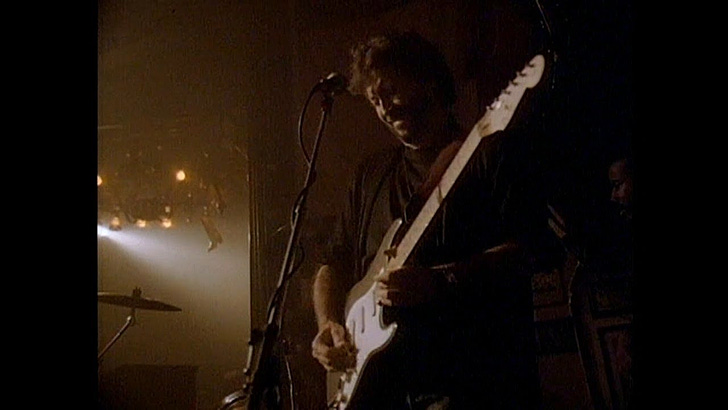With beer marketing controversy back in the news, and a bit of experience with big city advertising, it seems apropos to look back at two classic commercials featuring vintage rock ‘n’ roll icons.
First, an Eric Clapton ad for Michelob that quickly became a punchline circa ’87 when it emerged that he was in rehab by the time it aired:
What appears today an innocuous bit of Madison Avenue professionalism—part of a campaign that also included Roger Daltrey, Steve Winwood, and the dreaded Phil Collins—had already attracted much derision for Clapton supposedly ‘selling out’ the true spirit of rock ’n’ roll.
The culmination was Neil Young releasing a parodic music video the next year capitalizing on the backlash (and what were such promo clips but long-form ads selling albums and tickets and t-shirts?):
[Apologies that Warner Music Group forbids embedding their content!]
It’s a very catchy song, well-produced and Neil’s most memorable in years, and as a child of ’60s people I reflexively relate to its ostensible sentiment. But it’s essentially a slick commercial about being anti-commercial.
What stands out decades later is how obnoxious the video is, how mean-spirited and self-righteous, and by today’s standards borderline racist. Whatever one thinks of the Clapton ad, it’s friendly and inclusive—who wouldn’t want to see a guitar god in a cool bar?—while Young’s is sour and crass.
MTV was understandably reluctant to air the video, which only served to increase its buzz. Young was quick to make hay of the situation, publishing an open letter remarkable in its self-regard:
“MTV, you spineless twerps. You refuse to play ‘This Note’s For You’ because you’re afraid to offend your sponsors. What does the “M” in MTV stand for: music or money? Long live rock and roll.”
Eventually MTV relented, and the video went on to win a Video Music Award. Young’s ad had done the trick: it got him a ton of attention and revived his flagging career.
In this day and age, with streaming having wrecked the music industry, the notion of ‘selling out’ has become almost quaint. Outside of a shortlist of household names, most musicians have little choice but to take whatever exposure they can get. By the standards of 1987 maybe Clapton did sell out, but if he hadn’t Michelob simply would have found somebody else, and listeners wouldn’t have gotten a new version of “After Midnight” that I prefer to the original.
Thirty-odd years later, in the darkest days of Covid coercion, most celebrities were lining up to parrot authoritarian talking points. Even as people were getting vilified and censored and canceled for questioning mandates and lockdowns, Eric Clapton courageously put his ass on the line to become an outspoken critic of pandemic policy, using his fame and platform at significant cost to give voice to millions of people who had been silenced. When it mattered most, he chose human rights over his career.
And what did Neil Young do? The supposed conscience of the counterculture tried to strongarm Spotify into canceling Joe Rogan for spreading “disinformation” about vaccines, some of which eventually became widely acknowledged. Debate was dangerous, in Neil Young’s view—the little people needed to be obedient to their technocratic betters. In terms of betraying what rock ‘n’ roll and the sixties, man were supposed to represent, he became one of the biggest sell-outs in music history.
I don’t look to musicians as moral exemplars, and certainly both Clapton and Young have checkered pasts. I still love Neil Young’s music, I can separate the art from the man, but I’ll never hear him in quite the same way again.
Next: Parting Grifts



Can't believe that a guy who performed "For what it's Worth", a song about a moral panic and authoritarian overreaction by moral busybodies, would not be able to see he was doing the same dang thing with the COVID scare. .
His comments are past but they’re not forgotten
Is this the story of Neil the Rotten?